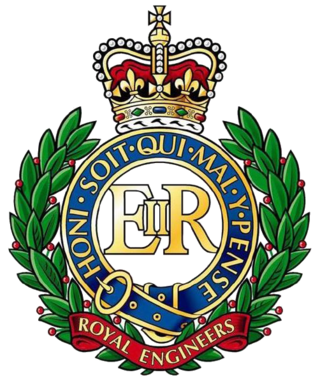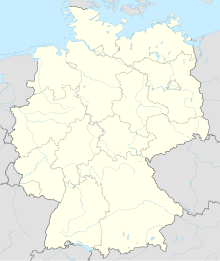
A brothel, bordello, bawdy house, ranch, house of ill repute, house of ill fame, or whorehouse is a place where people engage in sexual activity with prostitutes. However, for legal or cultural reasons, establishments often describe themselves as massage parlors, bars, strip clubs, body rub parlours, studios, or by some other description. Sex work in a brothel is considered safer than street prostitution.

Prostitution in Germany is legal, as are other aspects of the sex industry, including brothels, advertisement, and job offers through HR companies. Full-service sex work is widespread and regulated by the German government, which levies taxes on it. In 2016, the government adopted a new law, the Prostitutes Protection Act, in an effort to improve the legal situation of sex workers, while also now enacting a legal requirement for registration of prostitution activity and banning prostitution which involves no use of condoms. The social stigmatization of sex work persists and many workers continue to lead a double life. Human rights organizations consider the resulting common exploitation of women from Eastern and Southeastern Europe to be the main problem associated with the profession.

Prostitution in the Netherlands is legal and regulated. Operating a brothel is also legal. De Wallen, the largest and best-known Red-light district in Amsterdam, is a destination for international sex tourism.

In Great Britain, the act of engaging in sex or exchanging various sexual services for money is legal, but a number of related activities, including soliciting in a public place, kerb crawling, owning or managing a brothel, and pimping, are illegal. In Northern Ireland, which previously had similar laws, paying for sex became illegal from 1 June 2015.

Prostitution is illegal in the vast majority of the United States as a result of state laws rather than federal laws. It is, however, legal in some rural counties within the state of Nevada. Additionally, it is decriminalized to sell sex in the state of Maine, but illegal to buy sex. Prostitution nevertheless occurs elsewhere in the country.
Prostitution in Ireland is legal. However, since March 2017, it has been an offence to buy sex. All forms of third party involvement are illegal but are commonly practiced. Since the law that criminalises clients came into being, with the purpose of reducing the demand for prostitution, the number of prosecutions for the purchase of sex increased from 10 in 2018 to 92 in 2020. In a report from UCD's Sexual Exploitation Research Programme the development is called ”a promising start in interrupting the demand for prostitution.” Most prostitution in Ireland occurs indoors. Street prostitution has declined considerably in the 21st century, with the vast majority of prostitution now advertised on the internet.
Prostitution in Myanmar is illegal, but widespread. Prostitution is a major social issue that particularly affects women and children. UNAIDS estimate there to be 66,000 prostitutes in the country.
Prostitution in Turkey is legal and regulated. The secularization of Turkish society allowed prostitution to achieve legal status during the early 20th century. Known as "general houses" (genelevler) in the country, these are state run brothels which must receive permits from the government to operate. In turn, the regulatory agencies issue identity cards to sex workers that give them rights to some free medical care and other social services. However, many local governments now have a policy of not issuing new registrations, and in some cities, such as Ankara and Bursa, brothels have been demolished by court order. In 2012, it was estimated there are 100,000 unliscenced prostitutes in Turkey, half of whom are foreign born.

Prostitution in Vietnam is illegal and considered a serious crime. Nonetheless, Vietnam's Ministry of Labour, Invalids and Social Affairs (MOLISA) has estimated that there were 71,936 prostitutes in the country in 2013. Other estimates puts the number at up to 200,000.
Prostitution is illegal in Egypt. The Egyptian National Police officially combats prostitution but, like almost all other countries, prostitution exists in Egypt. UNAIDS estimate there to be 23,000 prostitutes in the country, including Egyptians, West African and Eastern Europeans.

Military brothels were set up by Nazi Germany during World War II throughout much of occupied Europe for the use of Wehrmacht and SS soldiers. These brothels were generally new creations, but in the west, they were sometimes expansions of pre-existing brothels and other buildings. Until 1942, there were around 500 military brothels of this kind in German-occupied Europe, serving travelling soldiers and those withdrawn from the front. According to records, a minimum of 34,140 European women were forced to serve as prostitutes during the German occupation of their own countries along with female prisoners of concentration camp brothels. In many cases in Eastern Europe, teenage girls and women were kidnapped on the streets of occupied cities during German military and police round ups called łapanka in Polish or rafle in French.

The practice of prostitution in colonial India was influenced by the policies of British rule in India. During the 19th and 20th centuries the colonial government facilitated, regulated and allowed the existence of prostitution. Not only was prostitution in India affected by the policy of the Governor General of India, it was also influenced by the moral and political beliefs of the British authorities, and conflicts and tensions between the British authorities and the Indian populace at large. The colonial government had a profound effect on prostitution in India, both legislatively and socially.
Prostitution in Algeria is illegal under Article 343 of the Algerian Penal Code. This article also prohibits the use of prostitution services, pimping, living with a prostitute, soliciting, and forcing others into prostitution.
Crown dependencies are independently administered jurisdictions which do not form part of either the United Kingdom or the British Overseas Territories. They are self-governing possessions of the Crown. Internationally, the dependencies are considered "territories for which the United Kingdom is responsible", rather than sovereign states.
The British Overseas Territories (BOT) or alternatively, United Kingdom Overseas Territories (UKOTs), are 14 territories under the jurisdiction and sovereignty of the United Kingdom. They are the parts of the British Empire that have not been granted independence or have voted to remain British territories. These territories do not form part of the United Kingdom. Most of the inhabited territories are internally self-governing, with the UK retaining responsibility for defence and foreign relations. The rest are either uninhabited or have a transitory population of military or scientific personnel.

The history of prostitution in France has similarities with the history of prostitution in other countries in Europe, namely a succession of periods of tolerance and repression, but with certain distinct features such as a relatively long period of tolerance of brothels.

The 1st Field Engineer Squadron is an engineer unit of the Corps of Royal Engineers within the British Army. The squadron was first formed in 1914 following the mobilisation of the Army for the First World War. The squadron later supported The Cavalry Division and the first British Army of the Rhine. The squadron later saw service in the Second World War and today supports the 21st Engineer Regiment of the new 1st Strike Brigade.
The Stahlstraße is a street in the western district of Essen Germany. It is the city's red-light district. Stahlstraße is a dead end has a privacy screen across its entrance. It is located northwest of the city centre, about 200 metres southwest of the University of Duisburg-Essen and 300 metres northwest of the Limbecker Platz shopping centre.

The Linienstraße is a street in Dortmund, Germany, known for prostitution. The street is located north of the city's main railway station Dortmund Hauptbahnhof in the Stadtbezirk Innenstadt-Nord district. There have been brothels on Linienstraße since the beginning of the 20th century. Under the "Sperrbezirk" regulations, prostitution in central Dortmund is only permitted in Linienstraße.
During the beginning of the late Victorian era in Cape Town, South Africa, prostitution was considered an offense but was rarely prosecuted. The majority of prostitutes during this time were local women of color, though there was a small number of European women partaking in sex work as well. As time progressed, regulations on prostitutes increased under the Contagious Diseases Acts, and Cape Town saw a rise in both European prostitutes and prostitution itself as a result of the Mineral Revolution and the Second Boer War.
















